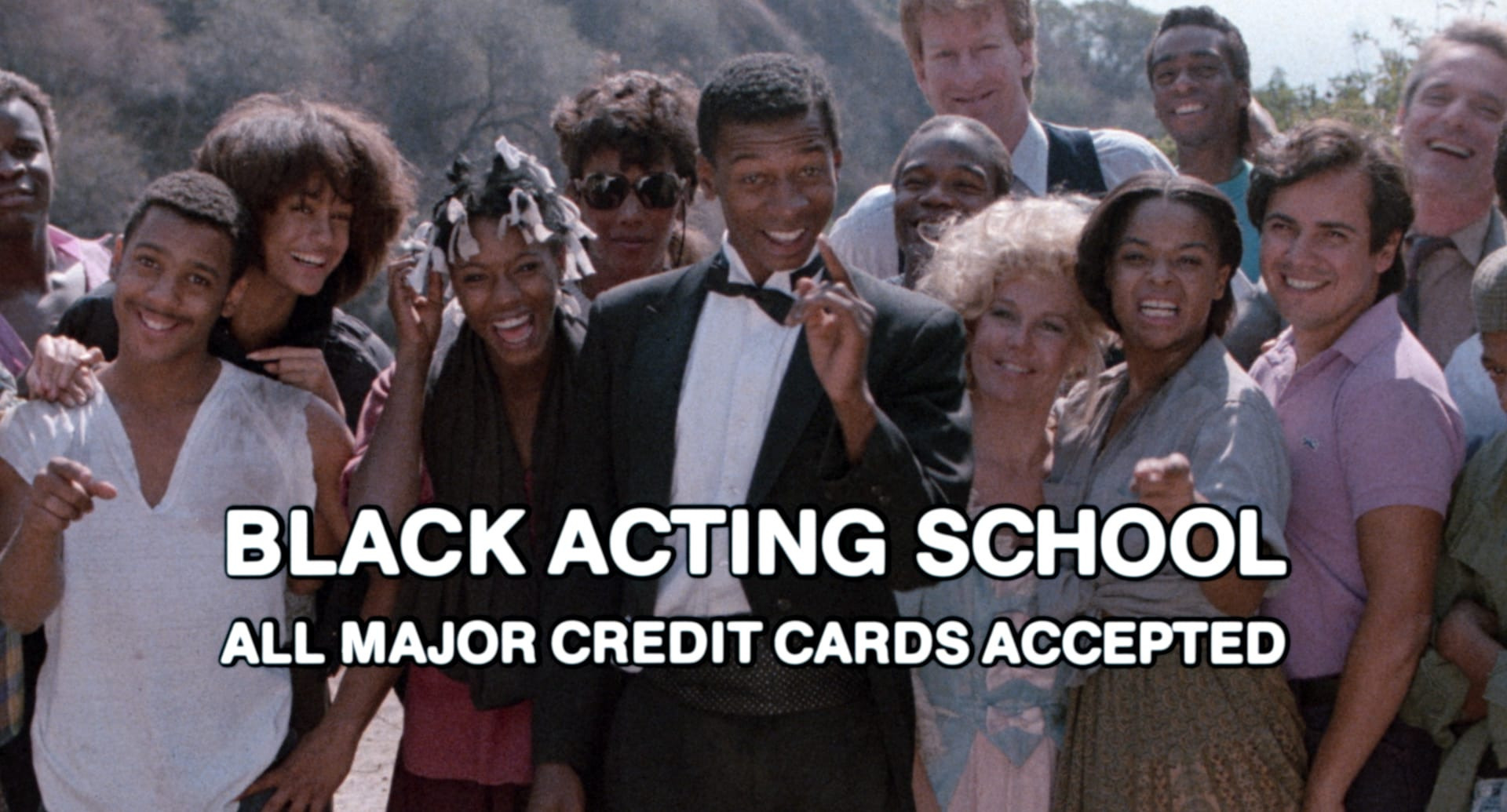So has one of the guys Bobby encounters at the casting call, who at first goes on a rant about how the script is “bullshit” and the role is for an “Uncle Tom.” Just seconds later, when the man’s name is called for his audition, a switch is flipped: “That’s me! Good luck, brother!” he exclaims jovially, all too eagerly dashing off to go read for the part. Later, that same guy will shuffle back on-screen again to bring the sentiment full circle.
While Townsend was making this film in which the spirit of Eddie Murphy haunts Bobby’s hero’s journey, the real Eddie Murphy was at the peak of his powers in Hollywood. In the movies he’d starred in up to that point, his characters rarely had the opportunity to interact with other Black people on-screen; his primary costars, including Judge Reinhold and Nick Nolte, were white. He was facing pressure from his Black peers to use his unprecedented superstardom to open doors for others. (Spike Lee was among his fiercest critics in the eighties.) While promoting Beverly Hills Cop II, Murphy told the press about the Black Pack, a crew of comedians who would “hang out together and bounce ideas off each other.” The group was composed of Murphy, Mooney, Arsenio Hall, Keenen Ivory Wayans, and . . . Robert Townsend. Murphy brought on Townsend to direct Raw, and Wayans as a writer and producer.
Yet one Black power player can’t upend decades of deeply ingrained Hollywood racism alone; nor can one witty satire. Two years after Hollywood Shuffle was released, Townsend was asked by a reporter if he was being offered a lot of parts in the wake of the movie’s success. With a “wry chuckle,” he replied, “Oh, sure. All the ones that Eddie [Murphy] or Richard [Pryor] have passed on.”
And new stereotypical bugaboos have arisen for Black performers in the years since, including the Magical Negro (otherworldly, they help white people solve their problems!); the Black Lady Therapist (she’s paid to help white people solve their problems!); the Black Best Friend (they’re friends with white people who need help solving their problems!); and
Tyler Perry’s Madea.
Still, Townsend did land a multipicture deal with Warner Bros. following the success of Hollywood Shuffle, and continued to direct (and occasionally star in) the kinds of movies that the industry hadn’t traditionally been interested in making, like the 1991 Motown-inspired musical drama The Five Heartbeats and the 1993 superhero comedy The Meteor Man. And more than three decades later, the game has changed drastically for Black screen performers in many ways. The “Eddie Murphy type” has made room for the Denzel and Will types, which in turn made way for the Viola and Regina—take your pick—and Kaluuya and Boyega types. There are clusters of new Black Packs made up of creatives who hang out and help make one another’s projects. The bar for a “good” script has been raised above whether the Black character dies.
In Hollywood Shuffle’s most poignant scene, Bobby visits his uncle Ray (David McKnight), a barber who gave up a singing career for a steadier job that would help feed his family. Bobby worries he has made a mistake in pursuing acting and expresses doubts about his talents. Ray has his own regrets, and insists that Bobby keep pushing for his dreams. “I stopped believing in me, started listening to all those other people tell me what I couldn’t do,” Ray says. Luckily for us, Robert Townsend, and the many other Black filmmakers we’ve come to appreciate, both before him and since, didn’t listen to all those other people.









